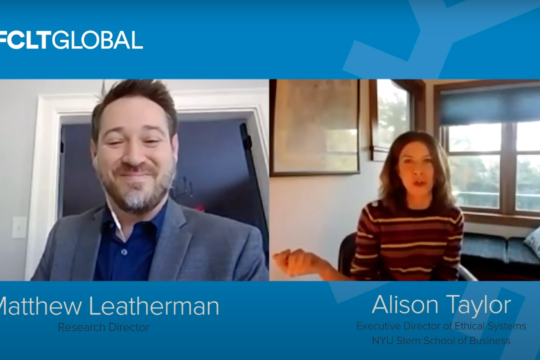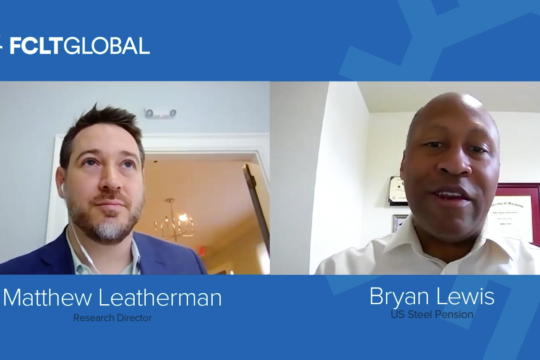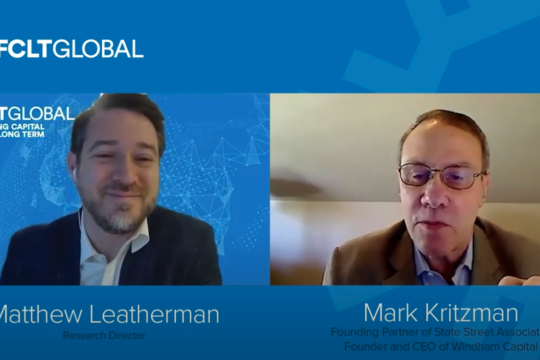In the final episode of FCLTGlobal’s risk-webinar series, we turn our attention to why long-term institutions manage investment risk in a multi-horizon way: because it positions them for pursuing opportunities purposefully and strategically. The world has witnessed such an effort in the past year’s COVID-19 response, and many even bigger health efforts await, like committing to curing cancer. Risk professionals have contributions to make as leaders, as partners, and as thinkers in all of these efforts. Join us for a conversation with MIT’s Andrew Lo, author of Adaptive Markets: Financial Evolution at the Speed of Thought and pioneer of securitization instruments to support the hardest – but also most consequential – innovations in healthcare. Sarah Williamson, CEO of FCLTGlobal, will lend additional insight from the perspective of chairing the board of the Whitehead Institute, “a world-renowned non- profit research institution dedicated to improving human health through basic biomedical research.”

Risk and Resilience | Video
14 October 2020 - Standard-setting and certification represent defaults of a profession, and for the investment risk profession these functions belong to the CFA Institute’s Global Investment Performance Standards (GIPS)and Global Association of Risk Professionals’ Financial Risk Manager (FRM) certification. Control of defaults is one of the most influential nudges, according to behavioral scientists. Long-term investors will note that these nudges can have encouraging, discouraging, or no impact on risk professionals’ long-term focus. FCLTGlobal will explore the nudges related to investment time horizon in this Risk Webinar episode featuring leaders from the CFA Institute and GARP, as well as a senior practitioner from Nuveen.

Risk and Resilience | Video
4 March 2021 - Forthcoming research examines societal income distribution in the statistical sense – such as its volatility, skewness, and kurtosis – and relates it to the macro risk distribution faced by investors. This analysis tests the hypothesis that investors’ efforts to reduce volatility reallocates it to individuals in the form of income volatility, and raises the question - Are investors’ risk management practices contributing to inequality?

Risk and Resilience | Video
3 May 2021 - Crises happen. Long-term investors are more exposed to them simply by virtue of their long holding periods. Their task cannot be to avoid crises, so instead they have to be resilient to them, which includes being able to anticipate them as well as possible so that board and staff know what they can expect, prepare accordingly, and proceed with their eyes wide open. The most widely-used statistics of investment risk, value-at-risk and probability-of-loss, omit details about what happens within an investment period, including how to know when systemic risk is rising and what might happen to their allocations, and newer statistics are beginning to gain traction to address these concerns.